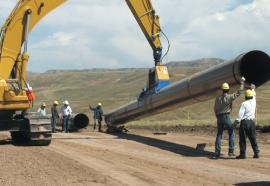Regulators Forum: Shifting Winds, Shifting Strategies
State regulators grapple with investments, supply planning, and structural issues.
The opposing challenges of higher gas prices and rising environmental concerns have put utility regulators in a difficult position: How can they bring rate stability while minimizing environmental impacts? At the same time, they are grappling with trends in consolidation, competition, transmission planning, and distribution service quality. Each state brings a different view of the changing utility landscape. For insight, Fortnightly brought together regulators from several states to discuss their plans and priorities for today and the future.






